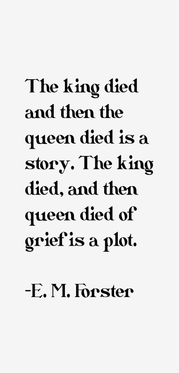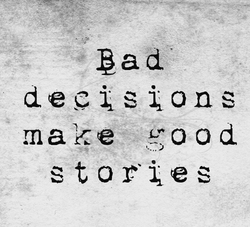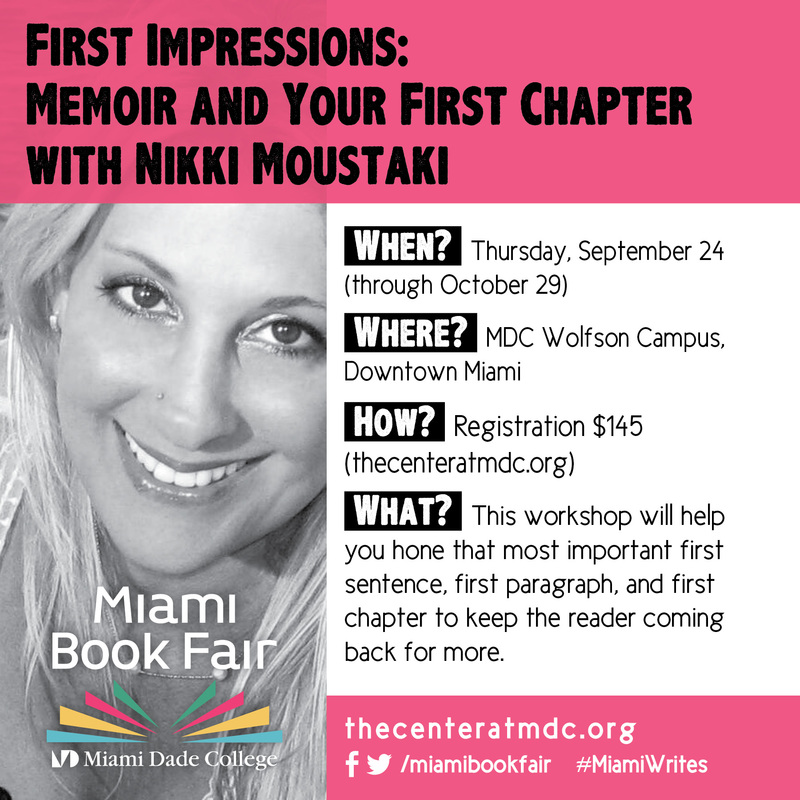
Not so fast, dear writer.
Plot may be the most difficult aspect for a novice working on memoir. Part of this is because most people experience a tempting urge to throw the kitchen sink (and perhaps the entire kitchen) into their story. It can be difficult to tease out the plot, the important stuff, from the junk in the cabinet under the sink.
Other novice writers will hold back important stuff from the story. Often, it’s a case of what I call “vivid memory syndrome.” This is when a writer remembers a scene or time so vividly that he or she fails to let the reader in on the experience. The reader is not a mind reader. The more vividly you remember a scene, the more vividly it should appear on the page.
What do I mean by important stuff? Your memoir should contain scenes/stories and exposition that will serve to further your character’s desire, conflict, and resolution. In memoir, you are the main character. Today’s memoirs are often praised as “reading like fiction.” So, learning some of the tenets of fiction can’t hurt. Click READ MORE below for more on plot . . .

Trying to find your own plot in memoir can be complex because you are close to the story. It’s the old “can’t see the forest for the trees” dilemma. You also may not be able to see the elements of your story if the want/desire and conflict are subtle. In this case, you may just have to write an epic and then pare it down to its essence. Don’t be afraid to write material that you know might be cut. This material may lead you to unexpected places.
If you’re telling a very particular story of a “time something happened,” the plot will be obvious. For example, the time you were shipwrecked and lost at sea with a tiger in your lifeboat, or the time you were training to be in FBI and a psychopath with a taste for Chianti and human flesh would only talk to you about how to stop a serial killer.
Let’s look at a story we all know: There’s this young guy, Marty McFly. He’s a bit of a rebel, but basically a normal seventeen-year-old kid. OUR CHARCTER His mom drinks, his dad is a doormat, his siblings are losers, and a man who bullies his father has just wrecked his car, making this weekend’s trip the lake with his girlfriend impossible. CHARACTERIZATION To make matters worse, his girlfriend has just told him that she loves him, which means he might just score at the lake—but not if he can’t get there. MINOR COMPLICATION/SUBPLOT, DESIRE Marty is friends with an eccentric scientist, Doc Brown, who has invented a time machine made from a DeLorian. He asks Marty to videotape the time machine’s first trial run, which goes well. Libyan terrorists show up and kill Doc Brown. Marty, in an effort to save escape the gunfire, jumps into the time machine ACTION and accidentally finds himself in 1955, where he runs into his parents and interrupts their first meeting. In a creepy turn of events, his teenaged mother falls in love with him instead of his father. As a result, Marty and his siblings will never be born unless he can make his mom fall in love with his dad instead. CONFLICT/CATALYST Marty schemes to make this happen. ACTION The only thing standing in his way is a bully named Biff, the same man that bullies his dad in the present and is aggressively after his mom in 1955. OBSTACLE. As a result of his schemes and his conquering of the bully, his mom and dad do fall in love and he is again destined to be born. He finds the 1955 version of Doc Brown and they both figure out how to send him back to the future. When he returns, his family is successful and he has a new truck. He can now go to the lake with his girlfriend. RESOLUTION What has he learned? That the future isn’t written in stone, that every decision creates a ripple effect. He also learns to stand up for himself—he could have been a future doormat like his dad, and now he won’t. He should have learned not to trust Doc Brown, but then we’d have no sequels.
If Marty were writing this memoir, this is how he’d write it. These plot points are obvious. If your story has obvious drama and obstacles like this one (sans the time machine), then your task will just be how to tell it in the most interesting way.
CONFLICTS AND SIMPLE DESIRES

1. Can I reduce my story to an elevator pitch? If you can’t, your story might be too broad. An elevator pitch is a reduction of your story into a sentence or two that you can tell someone in the time it takes to ride an elevator. Let’s say, 20 to 30 seconds or less. Here are some that you may recognize:
- An American teenager goes back in time thirty years and interrupts the moment where his parents meet, putting his future in danger.
- A group of seven disparate people embark on a three-hour sightseeing boat tour, encounter rough weather, and spend the next three years fabricating ways to leave the deserted island where they find themselves castaways.
- A young girl is swept away to a strange land where she makes odd friends, enrages a spiteful witch, and searches for a wizard who will send her back home. Here’s a funny one I found on the Internet for the same story: “Transported to a surreal landscape, a young girl kills the first woman she meets, then teams up with three complete strangers to kill again.”
- A financially bereft and earnest high school science teacher discovers that he has lung cancer, cooks crystal meth to pay his medical bills and provide for his family, and becomes a wanted drug kingpin.
- After a virus causes a zombie Apocalypse, a group of people must find a way to survive in an increasingly hostile landscape.
- A mad ship captain puts his men in peril on a vindictive hunt for the white whale that caused the loss of his hand.
- A precocious six-year-old girl living in a small town learns about racism by watching her lawyer father represent a man accused of rape.
- A great white shark terrorizes a small summer beach town, prompting the chief of police to take matters into his own hands.
- A docile and intuitive alien botanist becomes stranded on earth and befriends a young brother and sister who help him phone home.
2. What does my character want in this book/story? Remember, the character is you. If you can’t identify a clear desire, then you haven’t found your story yet.
3. What’s the story’s catalyst? What makes the character (you) take action? There should be one (perhaps more) very clear circumstances that force the character to act. Typically, these circumstances come from the outside, but inner conflicts make good stories too.
4. What action does the character take to meet his/her goals or ameliorate something that has gone wrong? Passive characters are not interesting. You should choose a story from your life where you did something as a result of something else that happened.
5. What does your character learn from his/her actions? In fiction, you may not be able to answer this if you’re writing a long piece. But in memoir, the story has already happened and you are past it. What did you learn from the experience you are writing about? If you learned two-dozen lessons, your story might be too big. Pare it down.
6. Am I starting my story in the right place? In a story with a lot of obvious drama, the story should start pretty close to the inciting incident, the catalyst. But what if your story is subtly dramatic? In that case, it may start in the middle of the action. If you start too far back, you chance boring the reader.
Remember, all of these "rules" can be broken if you can pull it off.



 RSS Feed
RSS Feed